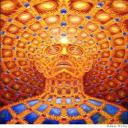Yahoo Answers is shutting down on May 4th, 2021 (Eastern Time) and beginning April 20th, 2021 (Eastern Time) the Yahoo Answers website will be in read-only mode. There will be no changes to other Yahoo properties or services, or your Yahoo account. You can find more information about the Yahoo Answers shutdown and how to download your data on this help page.
Trending News
What's so special about Tao Te Ching? Taoism?
I'm not talking about the religion, but the Lao Tzu philosophy.
Is it any different than fatalism? I know it has lots of shared grounds with pacifism, but it seems as though it literally advocates letting things be, and "inaction".
I just don't see how it's anything but apathy, indifference and nihilism, for lack of a better word
6 Answers
- ?Lv 71 decade agoFavorite Answer
You are attempting to interpret a non-Western philosophy in purely Western terms, since the cultures are different their world views will also be different so there can be no valid direct parallels. Taoism is about being part of the world, the philosophies you mention all start from the position that humans are separate from and in same way in charge of it. Taoism teaches that for humans to try and change the world as a whole in pursuit of short term advantage with no consideration of long term ramifications or side-effects is to invite disaster, something we can easily see to be true in many parts of the world. If you want a reasonable Western parallel to Lao Tzu you might want to check the writings of Epicurus, the things he actually said as opposed to the things falsely attributed to him by others later, both of them warn against the danger of wanting more than you need and learning to be content with having your needs met, which is in no way apathetic, fatalistic, or nihilistic.
- Hans-Wolfgang RLv 41 decade ago
The very special about Tao Te Ching, the Lao Tzu philosophy is, that meditation is not difficult. It is simple.
Precisely because it is simple you are feeling the
difficulty. You would like to do many things, and there
is nothing to do; that is the problem. It is a GREAT
problem, because you have been taught to do things. You
ask what should be done, and meditation means a state
of non-doing: you have not to do anything, you have to
STOP doing. You have to be in a state of utter
inaction. Even thinking is a kind of doing -- drop that
too. Feeling is a kind of doing -- drop that too.
Doing, thinking, feeling -- all gone, you simply are.
That is being. And being is meditation. It is very
simple.
And just that is so very special.
Additional response:
Your activity is goal-oriented, taoistic action (Wu-Wei) is not. Wu-Wei is an overflowing of energy; taoistic action is in this moment, a response, unprepared, unrehearsed. The whole existence meets you, confronts you, and a response simply comes. The birds are singing and you start singing—it is not an activity. Suddenly it happens. Suddenly you find it is happening, that you have started humming—this is Wu-Wei (doing without doing).
- 1 decade ago
What is extraordinary special about the Tao Te Ching and Lao Tsu written most probably in the sixth century B.C. has been translated more frequently than any work except the Bible.
The philosophy of Lao Tsu is simple: Accept what is in front of you without wanting the situation to be other than it is. Study the natural order of things and work with it rather than against it, for to try to change what is only sets up resistance.
Te which may be translated a “virtue” or “strength” lies always in Tao, or natural law. In other words; simply be.
Lao Tsu, an older contemporary of Confucius, was keeper of the imperial archives at Loyang in the province of Honan in the sixth century. All his life he taught that “The Tao that can be told is not the eternal Tao”; but, according to ancient legend (sick at heart at the ways of men), as he was riding off into the desert to die he was persuaded by a gatekeeper in northwestern China to write down his teaching for posterity.
More than an extraordinary human being he was an enlighten master and that alone makes him extraordinary special.
- 1 decade ago
Let me just say that whatever "Lao Tzu" that has been filtered into your brains is not the essence of what Lao Tzu is really about. It does not do you good to try to understand Chinese thought through Western categories.
It's too bad that the modern Chinese don't seem to write classics like they did in the past.
- How do you think about the answers? You can sign in to vote the answer.
- fluxgenesisLv 61 decade ago
Not necessarily inaction, but understanding when to act. Life is a river which flows, trying to swim against that river will make you tired and you may not get anywhere, if the flow is really powerful, you could end up further back then you started. The key is not to fight the flow, but to move with it, or let it move you.





